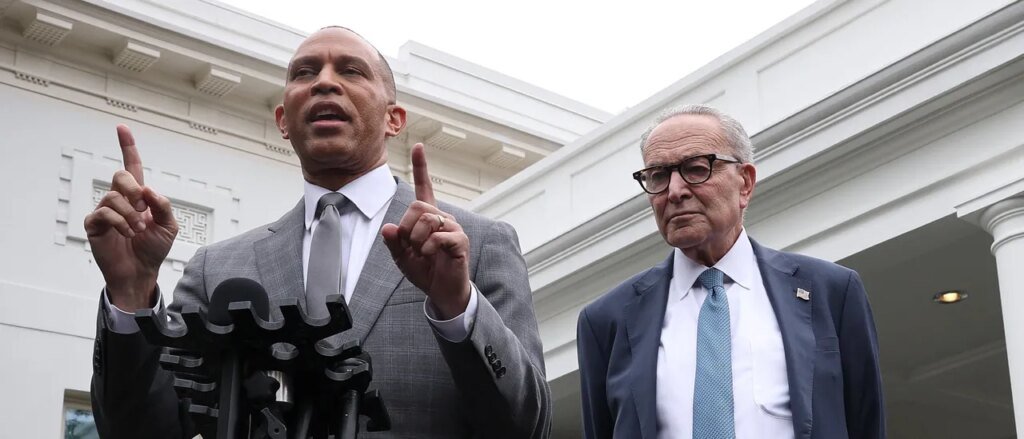Democrats Face Funding Challenges as Shutdown Looms
Democrats find themselves nearing potential government shutdowns, yet they haven’t articulated a clear plan to navigate the impending funding crisis.
On Tuesday evening, Senate minority leader Chuck Schumer is set to guide fellow Democrats through a filibuster, pushing for straightforward funding measures that could support government operations until November 21. With funds at risk of running out soon, it seems the Democrats are somewhat accepting of this situation, even if they haven’t definitively expressed what success would look like during this potential funding lapse.
Senator John Hickenlooper, a Democrat, remarked on the complexity of the situation, suggesting there are numerous potential paths forward, though not all are promising. He indicated that the party lacks a coherent exit strategy during a conversation with reporters.
As the shutdown deadline nears, some Senate Republicans have speculated that their Democratic colleagues are unprepared and lack a plan to reverse the indefinite funding halt.
Democrats have declined to support a clean seven-week funding extension put forth by Republicans. This deadlock is likely to lead to significant funding interruptions, especially since Senate rules require 60 votes for such measures. Given this, the Democrats will play a critical role in determining if any legislation passes in the Senate.
Louisiana Senator John Kennedy expressed skepticism about the Democrats’ ability to resolve the situation, suggesting that they aren’t thinking proactively about re-establishing funding. He doubts their confidence in the Office of Management and Budget and believes negotiations will become more difficult if the government shuts down.
It seems that some GOP members might be referencing the White House Budget Office, which has outlined plans that could permanently reduce the workforce during a shutdown. The previous administration, under Trump, was known for cutting government programs during funding suspensions, worrying Democrats who typically support expansive governmental initiatives.
Some Democrats hold Trump and Republican lawmakers accountable for failing to keep the government operational, even as they object to the GOP spending bill that has pushed the situation to this point. They argue that it’s the president’s duty to ensure the government remains open.
Other Senate Democrats maintain that Republicans should first address urgent requests from the Democrats to facilitate the reopening of government operations. Among these demands are about $1.5 trillion in policy changes aimed at certain funding cuts, such as reductions in foreign aid and public broadcasting.
Senator Richard Blumenthal from Connecticut suggested that, under pressure, Republicans would have to engage in realistic negotiations to resolve the standoff.
However, Senate Majority Leader John Thune quickly dismissed the notion that Democrats would have significant leverage over Republicans concerning policy concessions during this period.
He emphasized the considerable financial commitment tied to the proposed spending, arguing that Democrats do not gain leverage from an extended resolution.
Thune also highlighted that calls for extending government funding linked to Affordable Care Act subsidies are expected to last until the end of the year, implying that the current challenges stem primarily from Democratic political priorities rather than any urgent need.
Potential government shutdowns could disrupt various essential services, affecting numerous low-income individuals who rely on government nutrition programs and compelling military personnel to work without pay.
Still, as the midnight deadline approaches, the Democrats seem unconcerned about rapidly devising a backup plan.
While worries remain about access to vital government services, some Democrats also express concern regarding Republican plans that could burden the healthcare system and impose expenses on American families. There’s an urge for Democrats to assert their position promptly.







